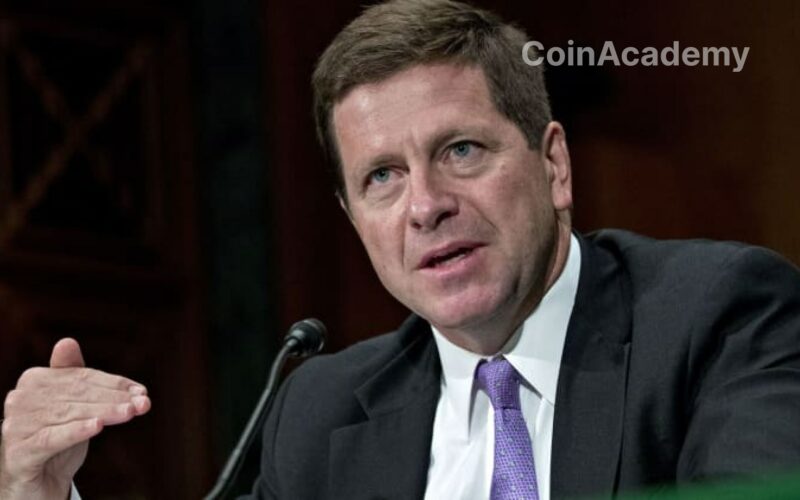Former Chairman of the SEC, Jay Clayton, declares that the approval of a Bitcoin spot ETF is “inevitable” and imminent.
According to Clayton, the underlying market conditions for Bitcoin have significantly improved over the past five years, reducing the risks of manipulation and fraud.
Clayton emphasizes that the approval of the Bitcoin ETF is not only significant for the cryptocurrency, but also for the financial sector as a whole.
In a recent interview on CNBC, Jay Clayton, the former Chairman of the United States Securities and Exchange Commission, stated that it is now certain that the SEC will approve the first Bitcoin spot ETF for trading in the United States.
I think the approval is inevitable. There is no longer anything to decide.
Improvement of market conditions
Clayton noted that the market dynamics for Bitcoin have drastically evolved over the past five years, alleviating the SEC’s initial concerns about market manipulation and fraud. “Five years ago, there were fake sales, price manipulation, and other practices that you would not want to make accessible to the general public because of this risk,” he explained.
Clayton also praised the current position of the SEC, highlighting it as a significant step forward for the agency to be comfortable with the disclosures of Bitcoin ETFs from firms such as BlackRock and Fidelity. Previously, there had not been adequate infrastructure to properly safeguard and secure Bitcoin in a way that would enable its accessibility to traditional market players.
Tokenization and financial transformation
Outside of the crypto markets specifically, Jay Clayton lauded the development of blockchain technology for its ability to tokenize and trade real assets. “This is a big step, not just for Bitcoin, but for finance in general. If you can tokenize the underlying assets and trade in this way, it’s a potentially significant change across finance, not just in the ‘crypto’ space.”
An influx of modified S-1 and S-3 forms from potential Bitcoin ETF issuers was submitted to the SEC on January 8, with issuers revealing the fees they wish to charge on their products after approval.




